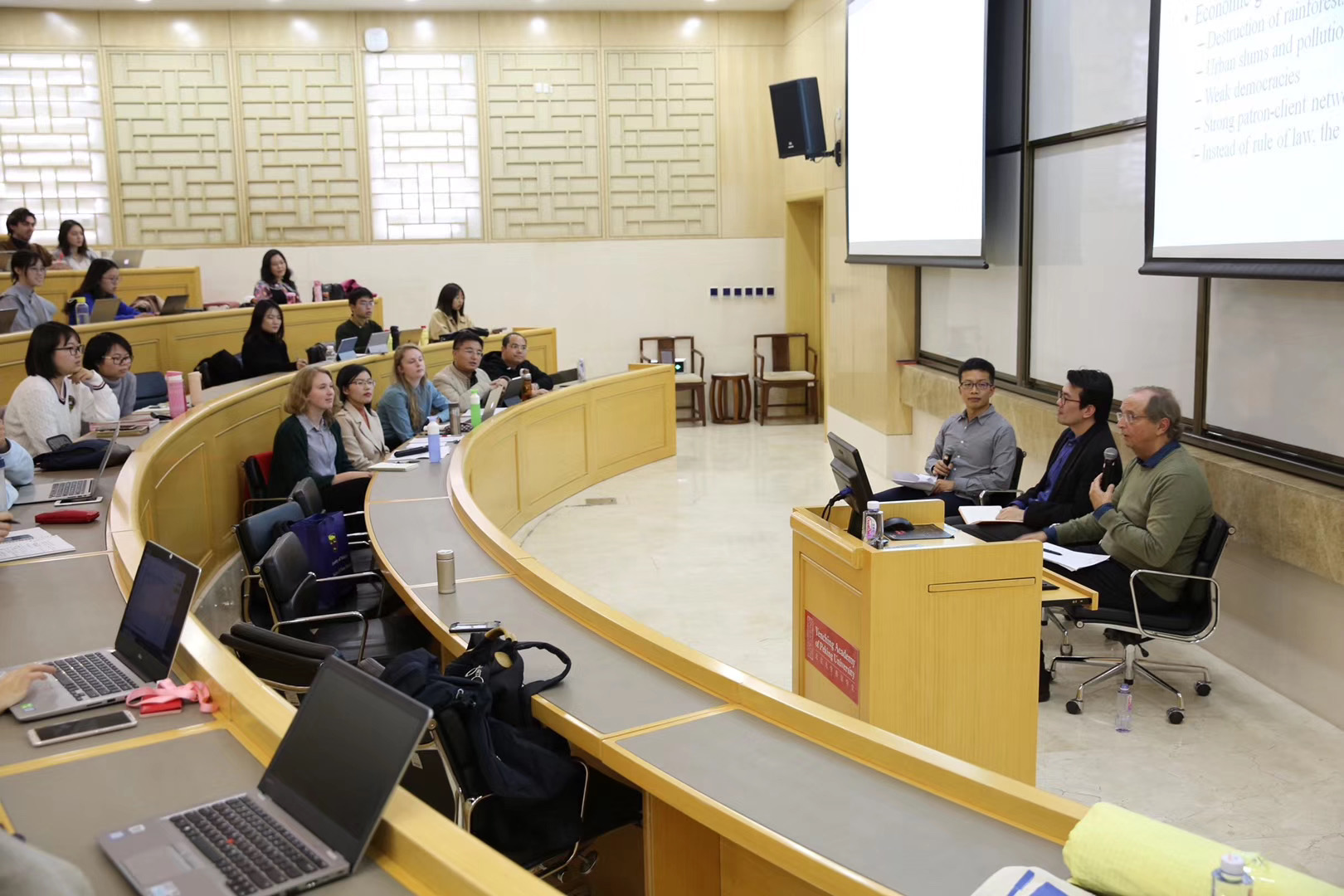
On November 4th, the Institute of Area Studies, Peking University (PKUIAS) held a News Buds Salon on the theme of “Decolonization, Nation-States, Cold War and the Rise of Authoritarian Regimes in Southeast Asia (1946-1980),” during which Henk Schulte Nordholt, a distinguished professor from Leiden University in the Netherlands and director of the Royal Netherlands Institute of Southeast Asian and Caribbean Studies (KITLV), was invited to exchange ideas on Southeast Asian history studies with students. The academic salon was presided over by Xie Kankan, assistant professor from the Southeast Asian Languages Department of the School of Foreign Languages, PKU. Rao Zhaobin, director of the Institute of China Studies of University of Malaya, delivered concluding remarks.
Based on his recent research, Prof. Nordholt mainly discussed the history and impact of the rise of Southeast Asian nation-states and the process of their nation-formation during the period 1946 to 1980, as well as the role played by the Cold War. Prof. Nordholt started by outlining the basic territorial concept of Southeast Asia. He stated that Southeast Asia should be studied as a whole, but due to language barriers, researchers often merely focus on their own target countries. He suggested that scholars should cast off this traditional constraint and build a broader knowledge framework.
Prof. Nordholt began his presentation with the end of European colonization in the first half of the 20th century and Japan’s invasion of Southeast Asia. He explained that Southeast Asia countries launched anti-colonial struggles in the 1940s, one after another. They set up their own emerging nation-states, promoted democratic reforms, and were filled with hope. However, the region entered a period of authoritarian rule in the 1960s and 1970s, when democratization stagnated. Prof. Nordholt related the complex history in simple terms, focusing on the analysis of various factors and problems involved. He expressed his belief that if we only paid attention to the political factors in nation-states’ construction after World War II, the long-term impact of the process of decolonization might largely be neglected. At the same time, he also stressed that the Cold War played an important role in facilitating decolonization in the past 40 years. Against the backdrop of the Cold War, Southeast Asia became a region prone to conflicts, and many nation-states in this area experienced large-scale violence during that time. Concerning Anthony Reid’s attitude toward the Cold War in his works, Prof. Nordholt expressed his reservations. He pointed out that Prof. Reid, the famous Southeast Asian scholar, played down the influence of the Cold War on Southeast Asia, while actually this factor played a key role in the process.
After the report, students who attended the salon engaged in an in-depth discussion with Prof. Nordholt on issues he had raised in his presentation, such as the role of the former colonial suzerain in the new nation-state in the post-colonial era, the relationship between Southeast Asian countries and China and the US, and the necessity of authoritarian rule in the construction of Southeast Asian countries.
Rao Zhaobin, director of the Institute of China Studies, University of Malaya, commented that Prof. Nordholt's lecture was very interesting and enlightening. He stated that [the professor’s] method, which breaks through geographical boundaries and compares different Southeast Asian countries, is a salutary lesson to discuss. At the same time, Prof. Rao Zhaobin also mentioned China's part in this process and emphasized the influence of China- Southeast Asia relations on the situation in Southeast Asia.
In conclusion, Xie Kankan referred to several key issues mentioned in Prof. Nordholt’s presentation and reiterated the necessity of studying and viewing the countries of Southeast Asia as a whole region.


